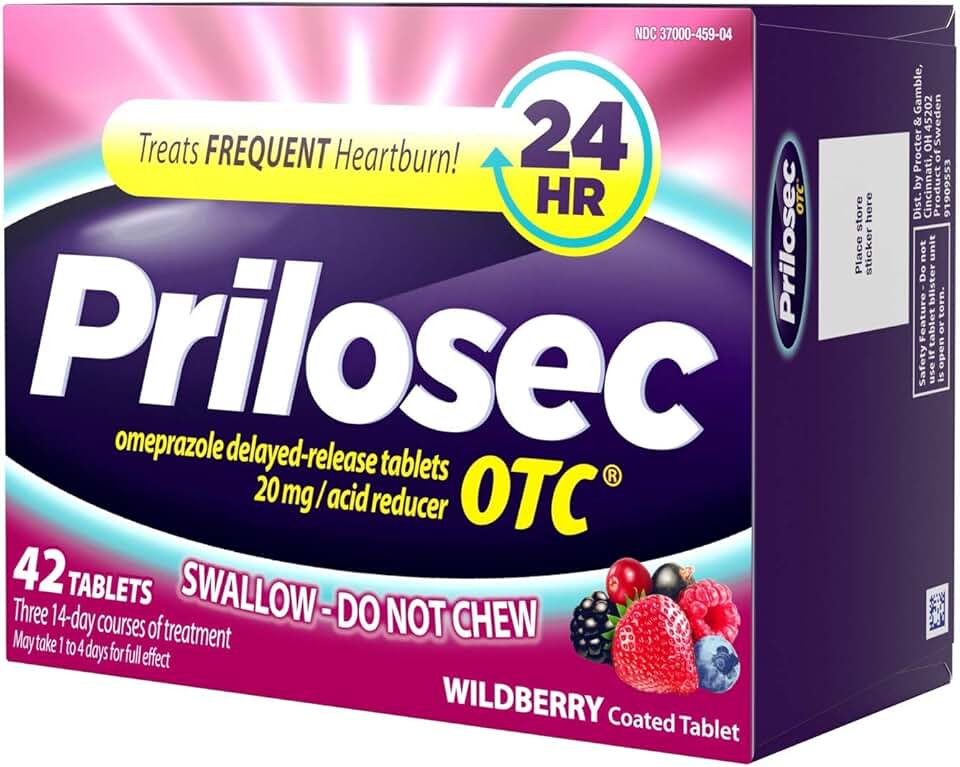Prilosec - Product Description
Overview:
Prilosec (omeprazole) is a proton pump inhibitor (PPI) that effectively reduces stomach acid production. It is used to treat various acid-related conditions, including gastroesophageal reflux disease (GERD), erosive esophagitis, and peptic ulcer disease. Prilosec works by blocking the proton pump enzyme in the stomach lining responsible for acid secretion, which helps to alleviate symptoms such as heartburn, acid regurgitation, and discomfort while promoting the healing of acid-induced damage to the esophagus and stomach lining.
Indications:
Prilosec is indicated for:
- Treatment and management of GERD and its symptoms
- Healing and maintenance of erosive esophagitis
- Prevention and treatment of gastric and duodenal ulcers
- Management of Zollinger-Ellison syndrome and other hypersecretory conditions
How to Use:
Prilosec is available in delayed-release capsules, orally disintegrating tablets, and powder for oral suspension. The standard adult dosage for GERD and erosive esophagitis is 20-40 mg once daily, usually taken before meals. For ulcer treatment, the dosage may vary based on the specific condition being treated. The capsules or tablets should be swallowed whole with water, not crushed or chewed. For orally disintegrating tablets, allow them to dissolve on the tongue before swallowing. Always follow your healthcare provider's specific instructions.
Advantages:
Prilosec offers rapid relief from acid-related symptoms and helps heal and maintain the health of the esophagus and stomach lining. It effectively prevents ulcer recurrence, reduces the risk of gastrointestinal bleeding, and is suitable for both short-term and long-term use under medical supervision. With multiple forms available, including capsules, tablets, and oral suspension, Prilosec provides flexible dosing options for various patient needs.
Conclusion:
Prilosec is a widely trusted and effective medication for treating acid-related gastrointestinal conditions, such as GERD, erosive esophagitis, and peptic ulcers. Its ability to significantly reduce stomach acid production alleviates symptoms, promotes healing, and prevents complications, making it a preferred choice for many patients and healthcare providers.
Composition:
Each Prilosec capsule or tablet contains omeprazole as the active ingredient, available in dosages of 10 mg, 20 mg, or 40 mg. Inactive ingredients may include hydroxypropyl cellulose, lactose, magnesium stearate, hypromellose, and titanium dioxide.
Note:
Prilosec should not be used by individuals allergic to omeprazole or other PPIs. Long-term use may increase the risk of bone fractures, low magnesium levels, and Clostridium difficile infection. Consult your healthcare provider before use, especially if you are taking other medications or are pregnant. Common side effects include headache, nausea, vomiting, and abdominal pain.






